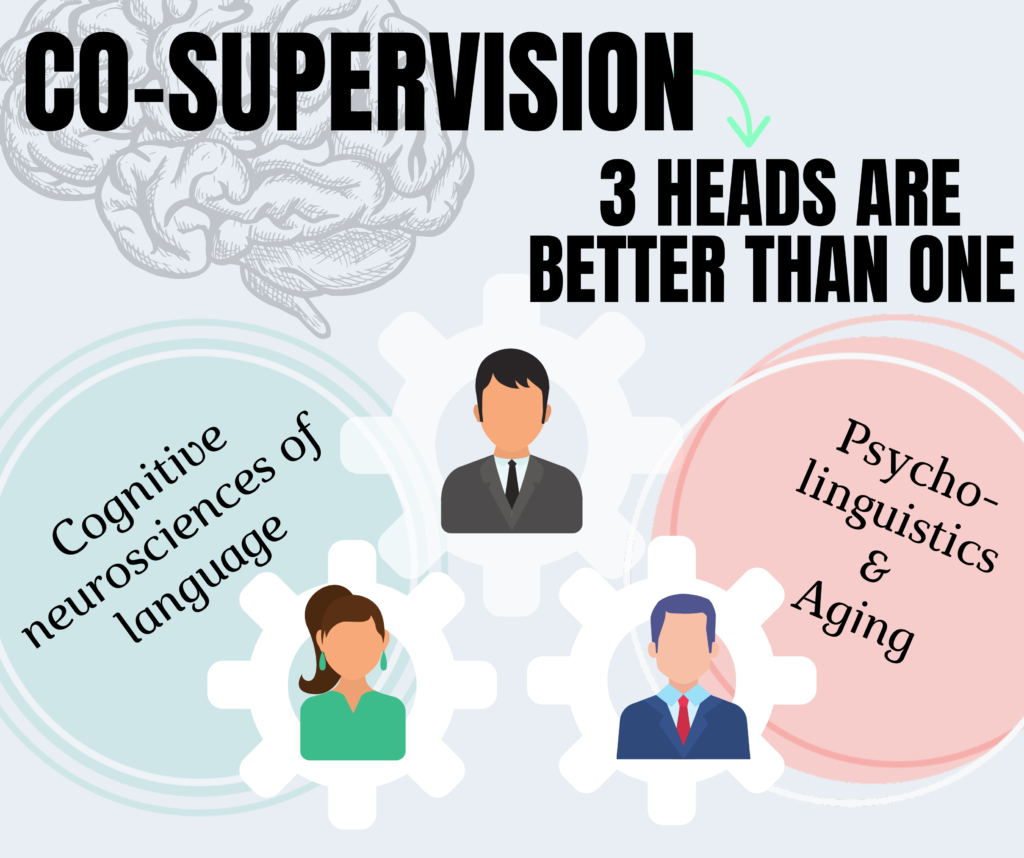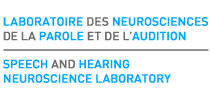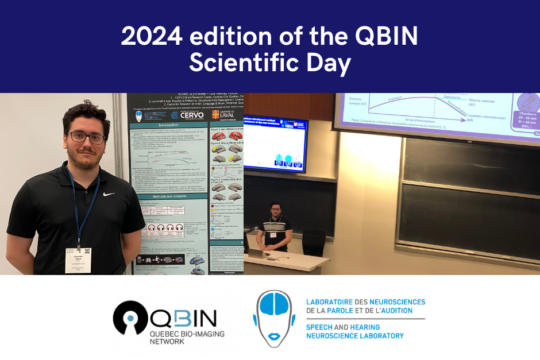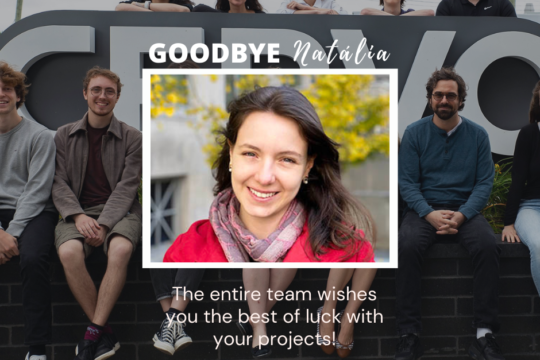Co-supervision
If you ask him what it’s like to be a research student, Gabriel will tell you that it’s a lot like a project manager role! As a doctoral student in clinical and biomedical sciences in our laboratory, he is indeed in charge of his research projects: literature review, development of protocols, data collection and analysis, communication of results, scholarship applications, etc. He also monitors various academic and professional activities that could enrich his knowledge and skills depending on the professional career he is considering.
Although the master’s and doctoral research programs also include some theoretical classroom courses, research students like Gabriel spend most of their time in the laboratory. These programs call for autonomy, a spirit of initiative and a greater sense of responsibility than at the undergraduate level. Gabriel must ensure effective time management, respect deadlines, and ensure the good progress of his project.
Fortunately, he is not alone in this adventure! In fact, Gabriel is supervised by two professors in the rehabilitation department of Université Laval and researchers at the CERVO research centre in order to guide him throughout his apprenticeships in the field of research. You already know Pascale Tremblay, director of our lab. She is accompanied by Gabriel’s co-supervisor, Joël Macoir. The roles of these professors are multiple: 1) support and guide Gabriel through the stages of his research projects, 2) manage the administrative side of his studies, e.g., registration and financial support, 3) evaluate, comment and discuss Gabriel’s work constructively.

Why a co-supervisor? For the combination of expertise! Co-supervision allows Gabriel to combine the complementary skills of two experts, here in cognitive neuroscience of language. He can thus take advantage of valuable advice, materials and techniques developed by these two researchers and their teams, in addition to enrich the development of his projects with stimulating discussions. Two supervisors also mean two career paths, two temperaments and two “corporate cultures” to learn from, leading to a richer experience.
So is co-supervision the ultimate setting in research? It depends on the nature and scale of the project. And for students, it means that they have to meet the expectations of two people instead of just one! So it can sometimes be challenging!



